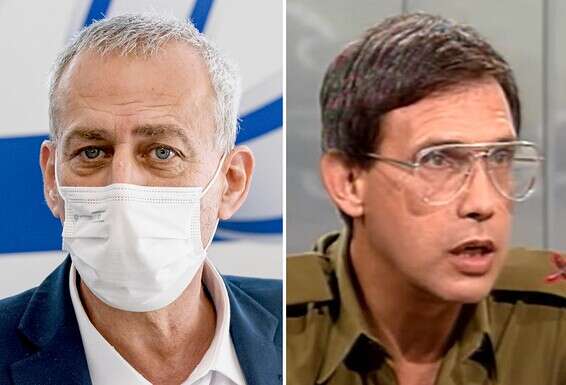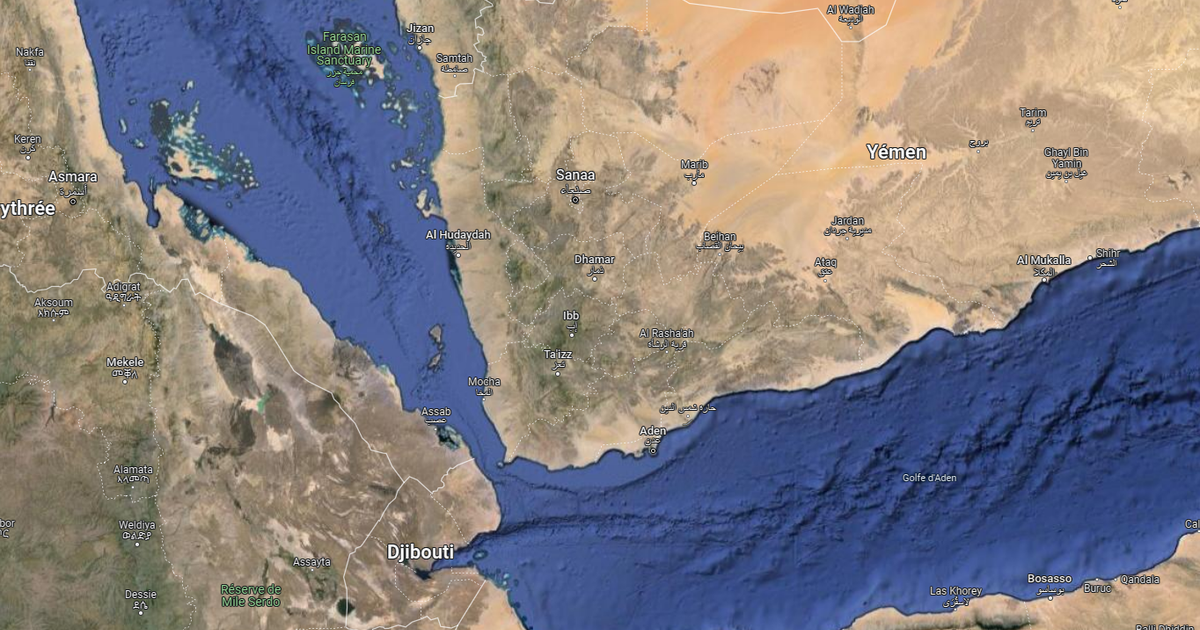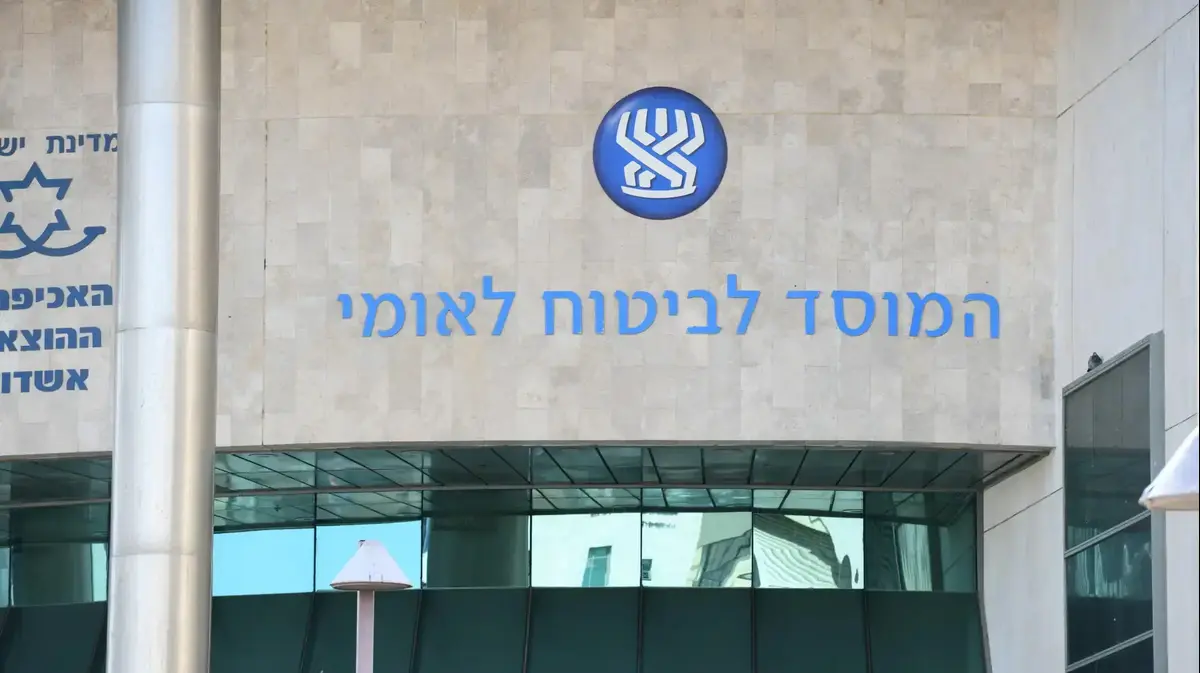From getting masks and the fear of going out into space to the authoritative man who appears on television • Three decades separate the war from Corona, but there are quite a few similarities between them
It is not hard to believe, but even exactly 30 years ago, Israel was in a state of emergency.
Even then, every evening a brigadier named Nachman appeared on the television screens, and even then everyone had to be equipped with masks.
This period was called the First Gulf War, which began when Iraq invaded and occupied Kuwait.
Following this, a coalition of states led by the United States launched an offensive against the forces of Saddam Hussein, the ruler of Iraq.
The peak of the war was exactly in mid-January 1991, when Operation Desert Storm, an air and ground offensive against Iraq, began.
In response, Scud missiles were fired at the central area, and all the Israelis were ushered into "sealed" rooms with the help of several sheets of nylon and masking tape.
Even then, as today, the country was filled with long queues, but this was not to perform a corona test or get vaccinated, but to get protective kits.
30 years after the operation, we went back a bit in time and made a comparison to find the similarities and differences between the two periods.
The great enemy
The
dictator
Saddam Hussein of
Iraq, whose hallmark was the black mustache, caused millions not to sleep at night when he sent Scuds into Israeli soil.
In the best tradition, he was imitated on Israeli television in the form of the entertainer Matti Sri.
The trauma of the cruel dictator and his actions accompanied Israel even years later - until his arrest by US forces and his execution in 2006.
Corona virus
In contrast to the threat of the Gulf War, so everything was tangible, the great enemy of today is invisible.
The same virus that came from the city of Wuhan in China, skipped it between countries and paralyzed the whole world.
Since his arrival, anyone who sneezes or suffers from a fever is immediately suspected and becomes assigned.
Nachman of the period
Brigadier General Nachman Shai
, IDF Spokesman, was given the national sedative role of the period during the war.
There was only one TV channel in Israel, so he did not have to skip between the studios.
His job was to list the number of wounded and the damage and urge civilians to stay home.
Some believe that once, 30 years ago, Israelis were a little more disciplined.
Brigadier General (Res.) Nachman Ash The
national project manager of the war in Corona, Prof. Nachman Ash, is also a Brigadier General in the reserve who served as Chief Medical Officer in the IDF.
As part of his job, he should act to minimize the damage of the epidemic, influence cabinet ministers, make the right decisions and explain to the public why it is important to stay home - but honestly it does not always work.
The masks
The gas masks and
black rubber bands were probably the most prominent hallmark of the Gulf War.
They not only covered the mouth and nose, but hermetically sealed the entire face so that we would not breathe a chemical, and allowed breathing through a filter.
These masks were not graceful and frightened children.
If the current masks bother you, remember that then people almost completely lost the ability to communicate with each other.
Cloth masks
are probably the best-selling item in 2020 - in fact, one that is simply not allowed to leave the house without.
Those caught without a mask receive a fine of NIS 500 - no matter what excuse they give the policeman.
In the first weeks of the corona outbreak in the Ministry of Health, they did not introduce the obligation to wear a mask and did not recommend it at all.
But as soon as the obligation to wear a mask was imposed, the shops began to storm until they ran out of shelves.
Made us stay home
Snake Viper is the
code name for activating the alarm system that made everyone stay home.
Even when the danger passed, people were called to continue staying in homes.
"The public is required to stay at home as it was yesterday" - Mr. TV, Haim Yavin, ordered the citizens.
These were days of lack of traffic on the streets, restrictions - and especially great apprehension.
The closure of the
decision that left millions of Israelis at home, without educational institutions, malls, restaurants and non-essential workplaces.
Even the movement of Israelis was limited to one kilometer from home, and a walk with the dog suddenly became a reward rather than a punishment.
Despite the closure, Israelis were often caught violating regulations, and even provided a variety of creative excuses.
What we ate
Cans of
corn, vine leaves and pretzels - Almost every airtight room had a small cupboard that was converted into a pantry, where emergency snacks were stored.
Citizens were also required to prepare bottles of water when needed - and above all to remain calm.
Deliveries home
Despite the huge queues at the food chains on the eve of the first closure, Israelis have since learned a thing or two, and the streets have been filled with messengers in orange and blue, and the tables in the kitchen - from dishes, sushi and burgers to cookies and ice cream.
The most utilized part of the house
Stuck in the sealed room
These were times when only a few had a security guard, so the whole family gathered in one "sealed" room. The alarm took them millions of parents and children and grandmothers to the pre-prepared room, and spent long hours there until the sedative siren.
Waving goodbye from the balconies
One of the most exciting moments of the Corona period was the departure of hundreds of thousands of Israelis to the balconies to applaud and thank the medical staff.
Whether to wave goodbye to grandparents, breathe some air from the madness with the kids or prove to the cop that you are indeed in solitary confinement and have not jumped into the mall - the past year has undoubtedly justified the saying "every home needs a balcony".
The syringe
Atropine syringe
Each protective kit comes with an atropine syringe, which should have been injected into a person who has been hit by a chemical weapon.
But messing with the syringe was without a doubt the biggest fear, and everyone just hoped they would not have to use it.
Even then, there was talk of side effects, such as excessive sweating, a feeling of suffocation and mucus secretion from the nose.
Corona vaccine The
arrival of vaccines in the country marks the beginning of the end of the epidemic.
It seems that this time the Israelis are ready to be stabbed and as soon as possible, and in the vaccination centers you can meet young people who stand in line for hours just in case they get lucky and are left with "leftovers" from the vaccination campaign for the elderly.
This time, too, side effects have been reported on a limited scale, such as fever or a temporary feeling of paralysis in the face.
The hotels of the period
The "arteries" hotels The
missile attacks on the central area put the population in a state of anxiety, and led many of the area's residents to leave for a period in the periphery.
One of the destinations was the hotels of Eilat - which within hours of the rocket fire reported full occupancy.
Arkia even added flights from Sde Dov to Eilat to meet demand.
On the other hand, the then mayor of Tel Aviv, Shlomo (Chich) Lahat, referred to the phenomenon: "Those who veer from Tel Aviv, also veer from the homeland."
Corona hotels
The decision to isolate patients and debtors in Corona hotels has caused quite a few storms.
Many lamented the loss of elections, poor conditions, and residents living near hotels complained about the wild celebrations of young patients, who used to dance until dawn.
The forced evacuation of those returning from abroad to the Corona hotels was also not welcomed, when perhaps for the first time Israelis complained about a few days in a free hotel.
The children sat in front of ...
The TV screen in the
days when there was no computer in every home and the schools were closed, in an attempt to reassure the children, Israeli television broadcast the favorite series such as "No Secrets," "This Is It" and "Sesame Street."
Along with Margol and Merav Michaeli, Kipi Ben Kifud, who was the hero of the period, also wore a mask.
The children were asked to call the studio and share their feelings.
It was difficult to find extensive engagement on the question of long-term mental damage.
Zoom screen
Schools are closed, learning is done through the computer and today's children are simply flooded with screens at all hours of the day.
The zoom is crazy for quite a few parents and children who have a hard time dealing with it, both technically and when it comes to the ability to concentrate.
No wonder the students are fleeing to Fortnight.









